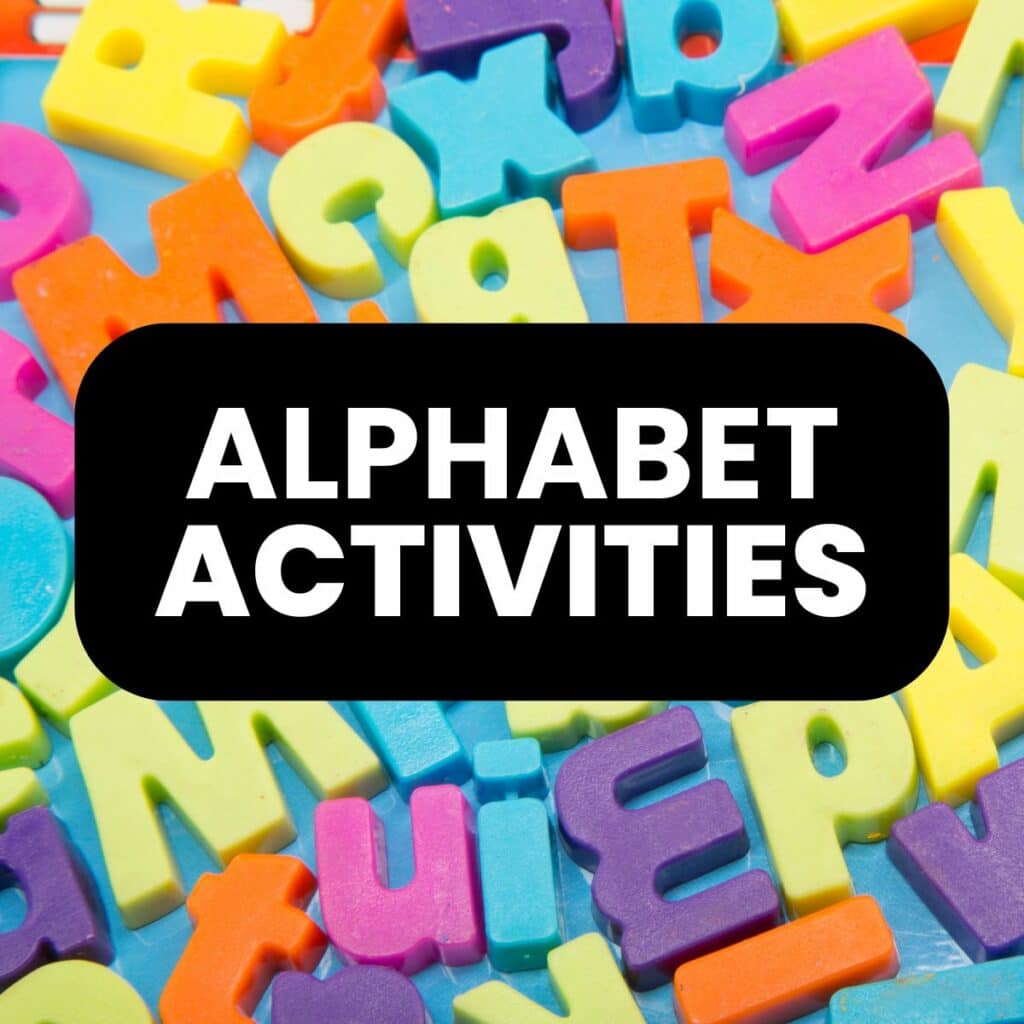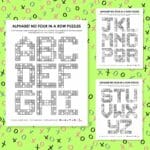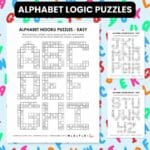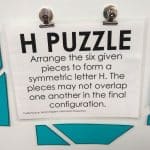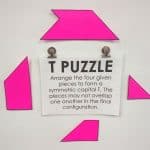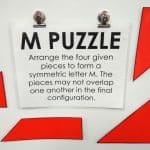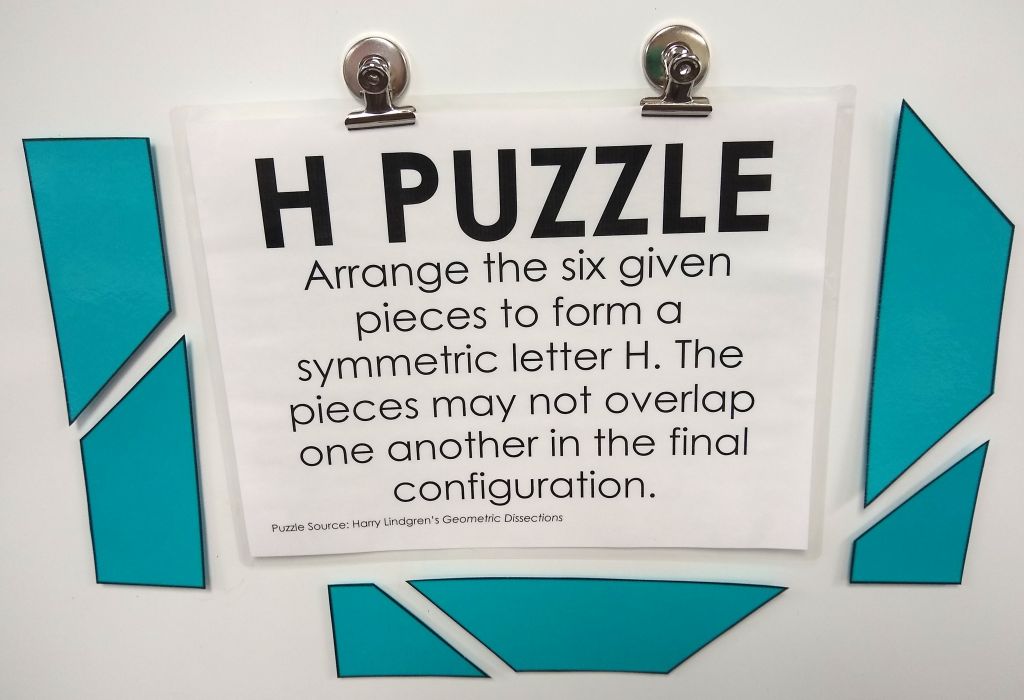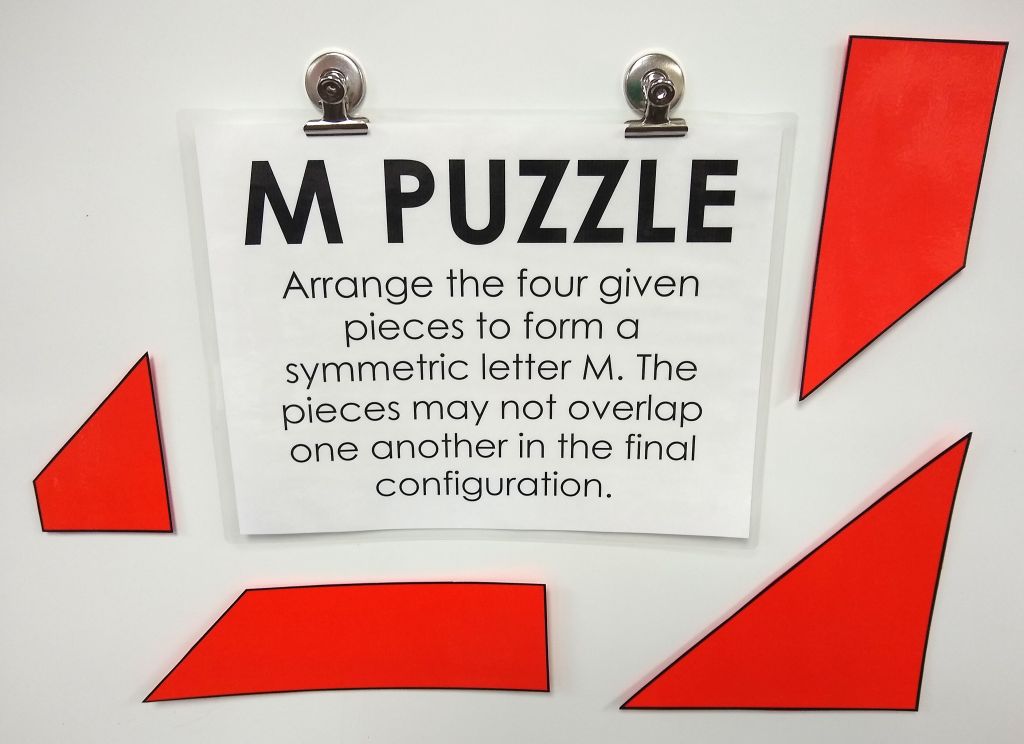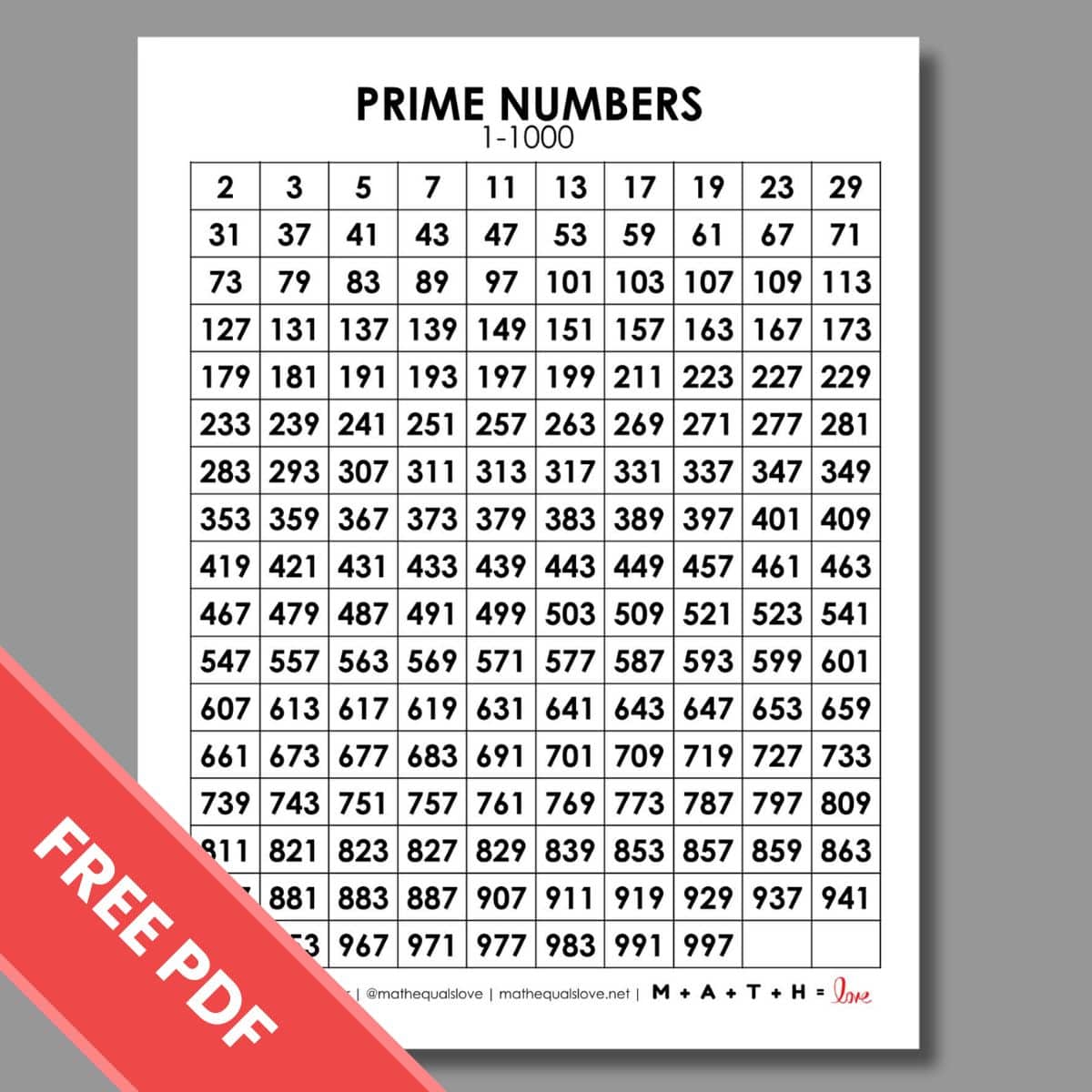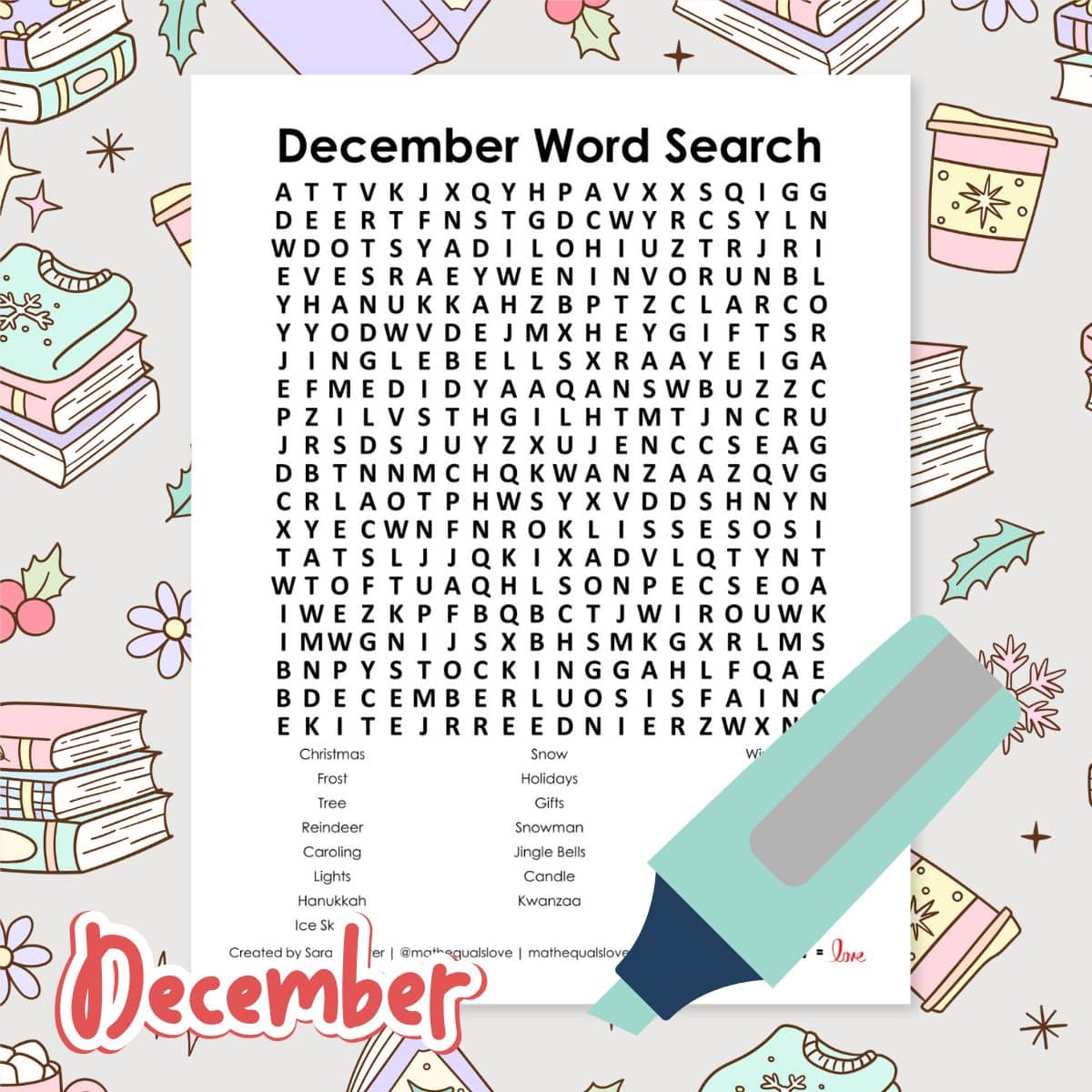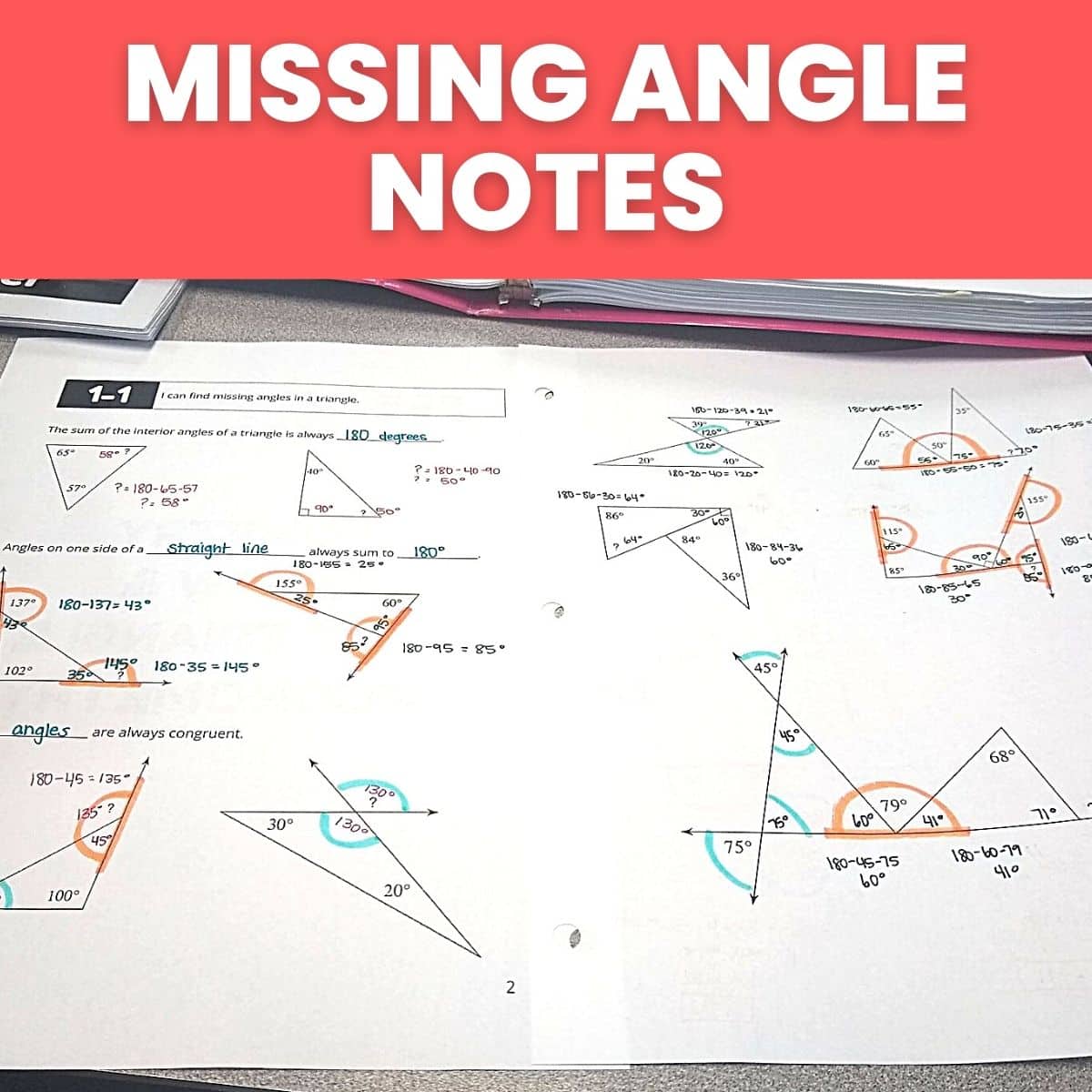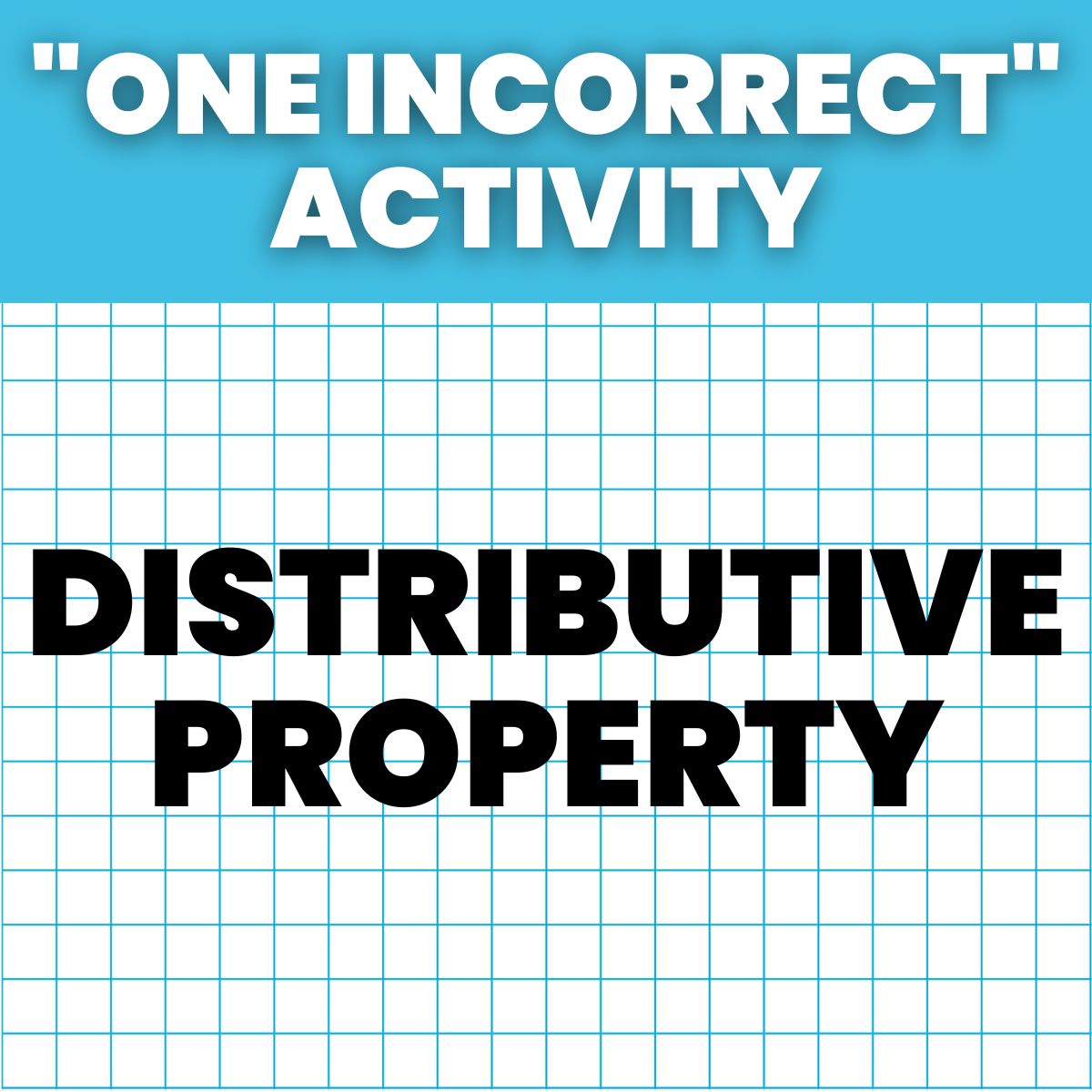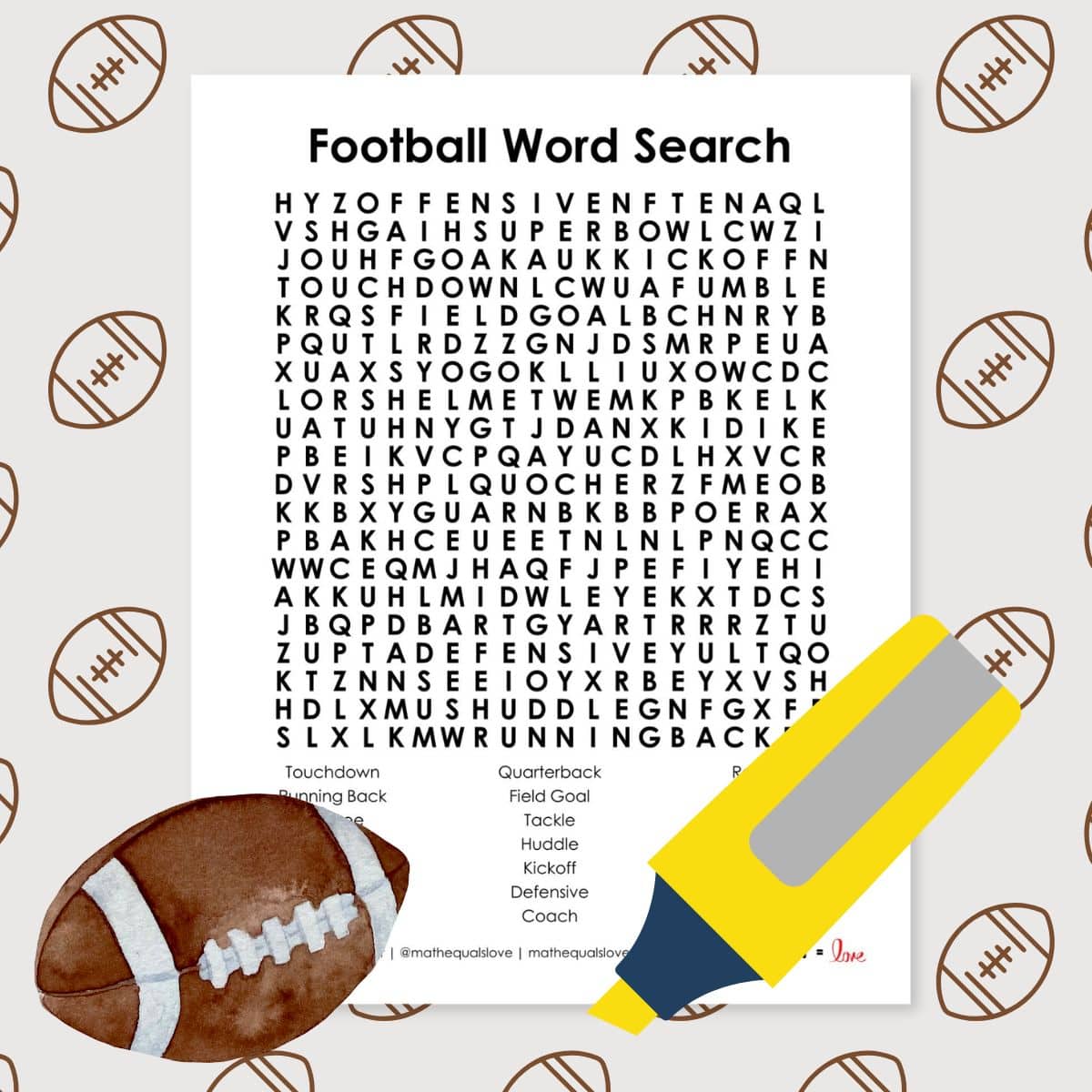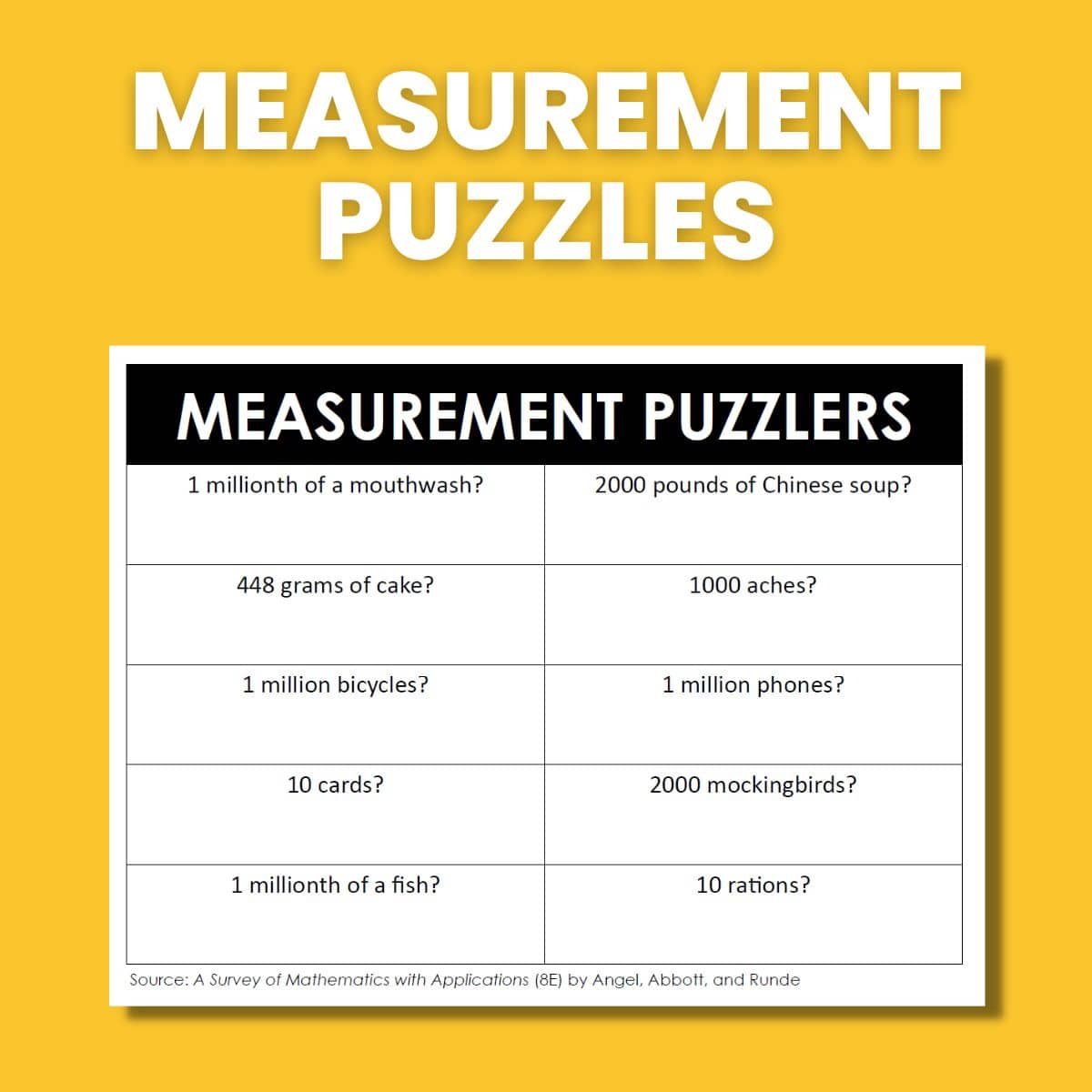Letter T Puzzle
This blog post contains Amazon affiliate links. As an Amazon Associate, I earn a small commission from qualifying purchases.
Can you solve this letter T puzzle by arranging the four given pieces to form a symmetric capital letter T? It’s deceptively simple looking.
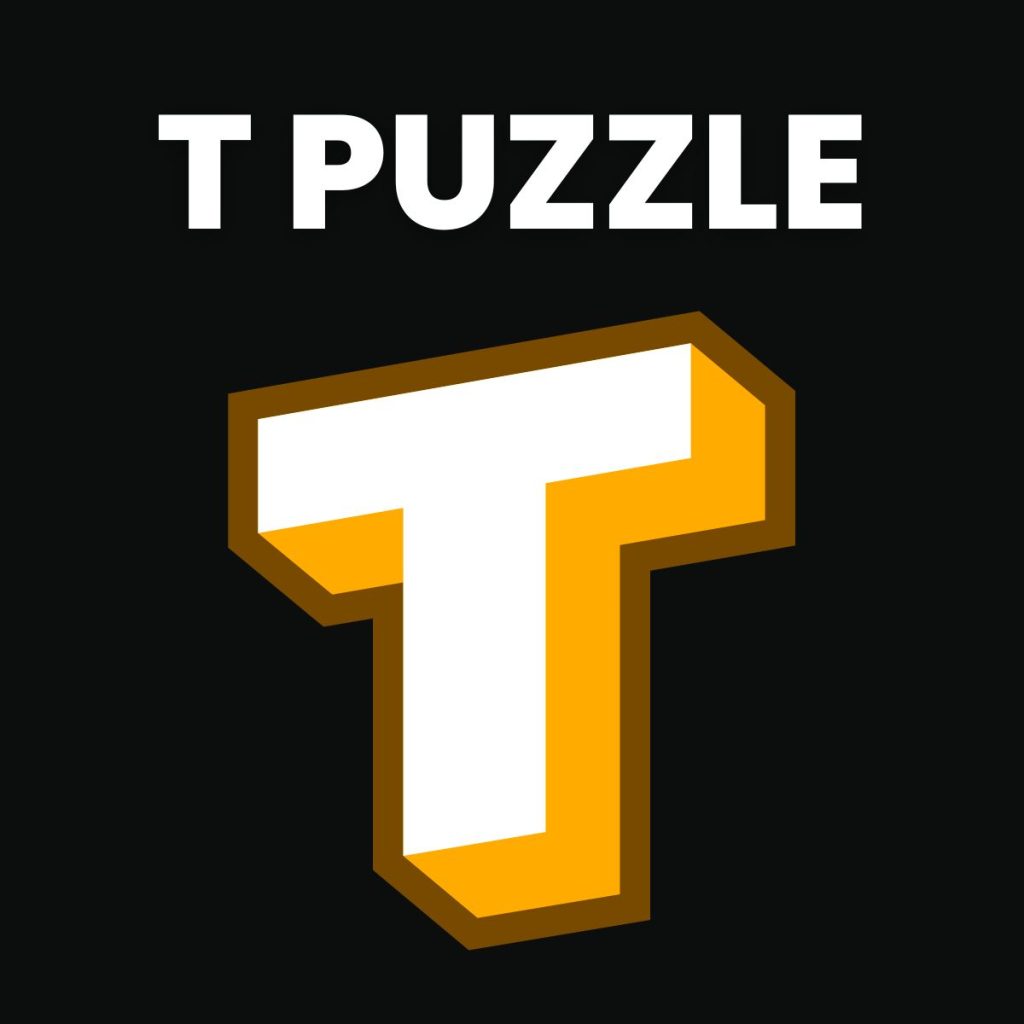
Looking for more alphabet-themed activities and puzzles for your classroom? Here’s a few examples of the other alphabet-related activities I have created.
Instructions
Arrange the four given pieces to form a symmetric capital letter T. The pieces may not overlap one another in the final configuration.
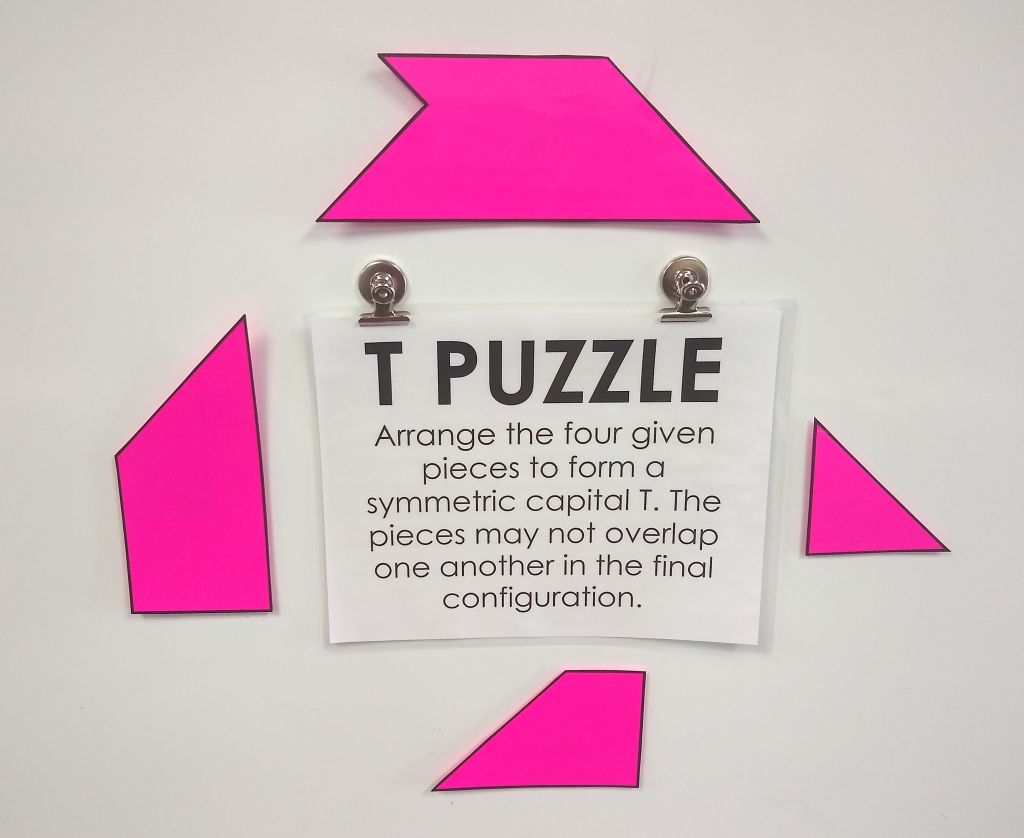
Difficulty Warning
I said in the introduction to this blog post that this four piece letter T puzzle was “deceptively simple looking.”
After all, how hard could it be to arrange just four pieces to form a symmetric capital T?
When Martin Gardner wrote of this puzzle in his column in Scientific American, he said, “I know of no polygon-dissection puzzle with as few pieces that is so intractable.”
Puzzle History and Source
This T-shaped puzzle actually originated in the early 1900s as a method of advertising. Companies would print their logos on the four puzzle pieces and distribute them to potential customers.
If customers were stumped by the puzzle, they were encouraged to contact the company for the solution. The Wikipedia article for the T Puzzle features a picture of an 1898 version of this puzzle.
ThinkFun used to have a version of this puzzle on their now defunct Puzzles website. An archived version thankfully still exists. I used this PDF to format my jumbo pieces.
Using this Puzzle in the Classroom
I actually used this puzzle with students back in 2017 during the first year I ever had a puzzle table in my classroom. I used a small set of laminated pieces that I had printed from the puzzles.ca website.
MATH = LOVE RECOMMENDS…
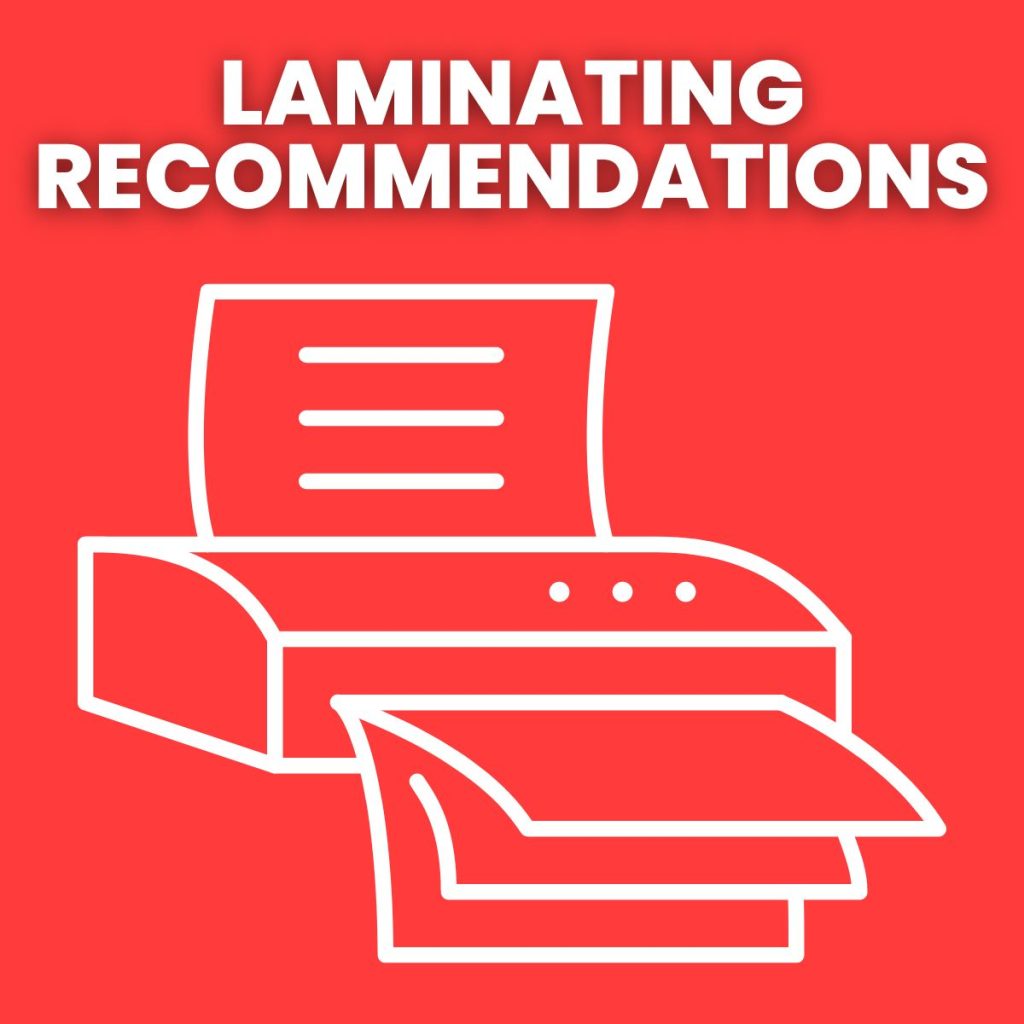
A laminator is a MUST-HAVE for me as a math teacher! I spent my first six years as a teacher at a school with a broken laminator, so I had to find a way to laminate things myself.
I’ve had several laminators over the years. I currently use a Scotch laminator at home and a Swingline laminator at school.
I highly recommend splurging a bit on the actual laminator and buying the cheapest laminating pouches you can find!
Students found the puzzle to be very tricky and even declared it to be impossible.
I decided to enlarge the pieces and to put disc magnets on the back of each piece so the puzzle can be hung from my magnetic dry erase board in my classroom.
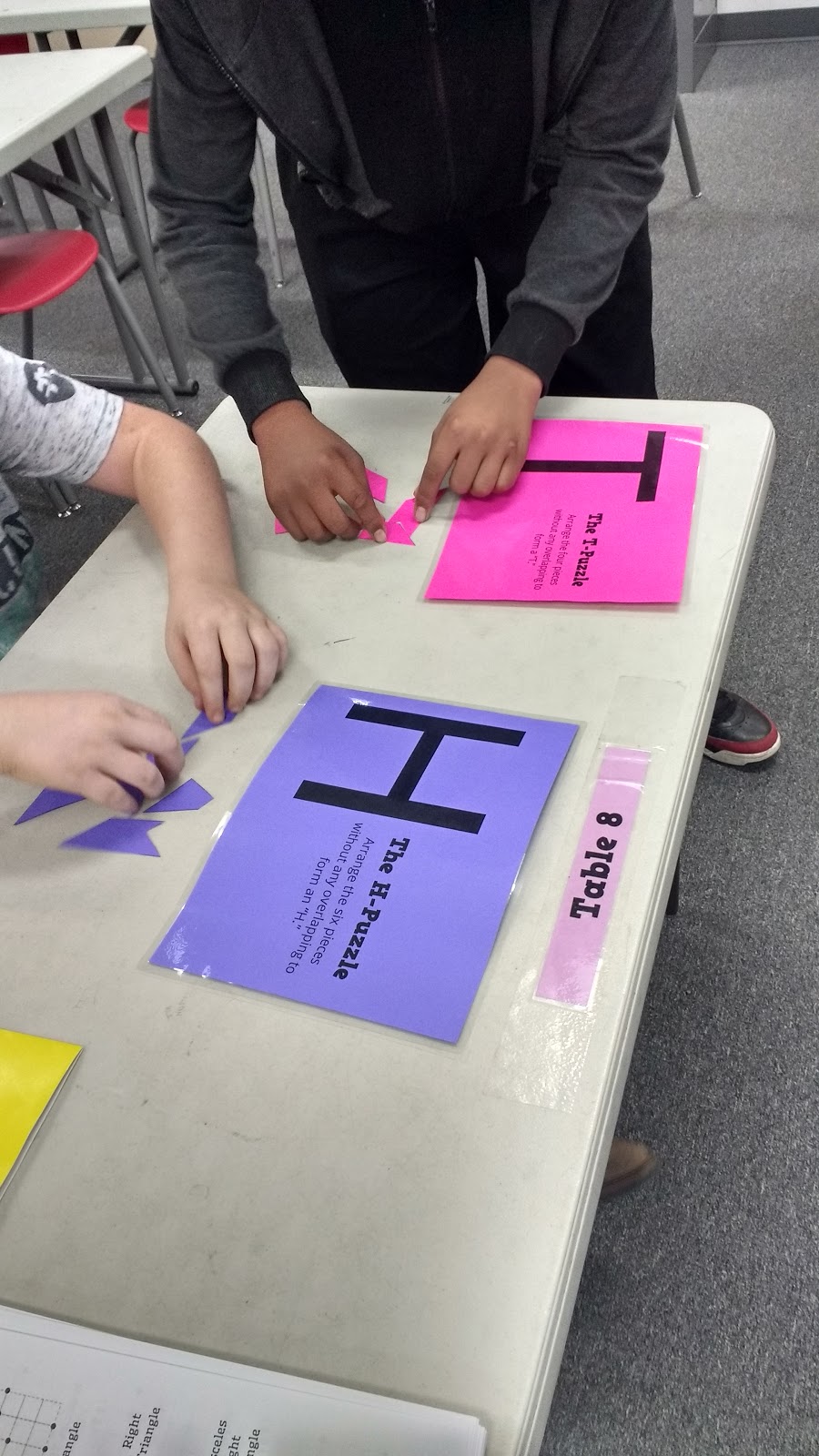
By hanging the puzzle up, I am able to catch the interest of so many more students.
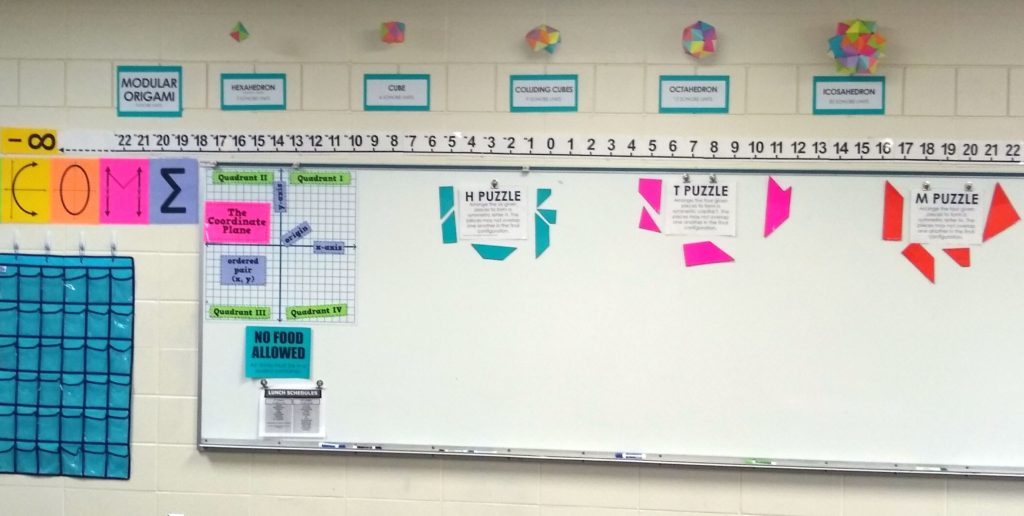
T Puzzle Variations
According to ThinkFun, there are actually 2 different symmetric capital Ts that can be made using these four pieces.
In addition to these two T’s, you can also use these four pieces to make a trapezoid. So, this T Puzzle is actually three tricky puzzles in one!
My students usually have enough trouble finding a single T, so I didn’t add the extra challenges to the puzzle instructions.
If you have a student who finds the solution too quickly, you can easily challenge them to one of these extension tasks!
T Puzzle Files
Click here to SAVE the file to your device.
T Puzzle (PDF)
5272 saves – 32.31 KB
You might also be interested in the M Puzzle I shared a couple of weeks ago. Want even more puzzles? Check out my puzzles page!
Puzzle Solutions
Puzzle solutions are available on a password-protected solution page. I do not openly post the puzzle answer keys because one of my goals as a resource creator is to craft learning experiences for students that are non-google-able. I want teachers to be able to use these puzzles in their classrooms without the solutions being found easily on the Internet.
Please email me at sarah@mathequalslove.net for the password to the answer key database featuring all of my printable puzzles and math worksheets. I frequently have students emailing me for the answer key, so please specify in your email what school you teach at and what subjects you teach. If you do not provide these details, I will not be able to send you the password.
Not a teacher? Go ahead and send me an email as well. Just let me know what you are using the puzzles for. I am continually in awe of how many people are using these puzzles with scouting groups, with senior adults battling dementia, or as fun activities in their workplace. Just give me enough details so I know you are not a student looking for answers to the puzzle that was assigned as their homework!

